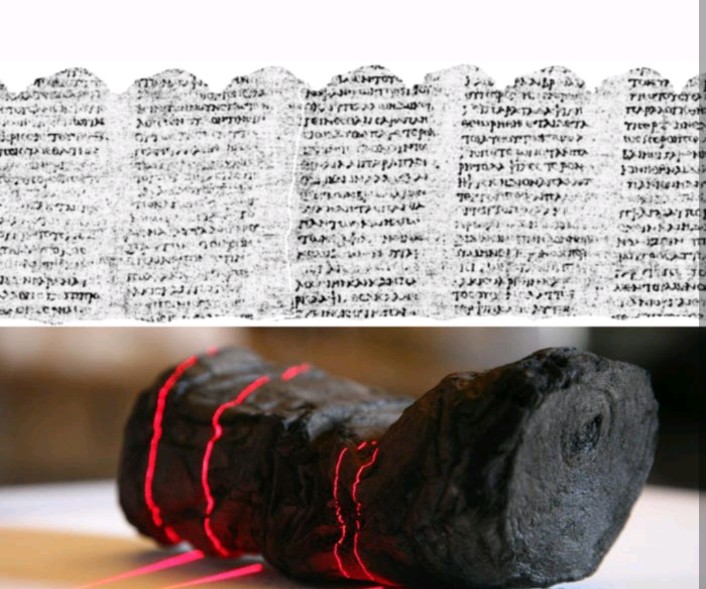Imagine being able to read the thoughts of Julius Caesar’s father-in-law or some philosopher who lived two thousand years ago. Doesn’t it seem impossible? But now this has become possible with the power of artificial intelligence.
Recently a team of engineers and papyrologists accomplished a remarkable feat – they succeeded in deciphering the hidden text of some ancient plaques buried in the volcanic ash following the eruption of Italy’s Mount Vesuvius in 79 AD. These tablets, known as the Herculaneum Papyri, were stored in the library of Lucius Calpurnius Piso Caesoninus, a wealthy Roman politician and father-in-law of Julius Caesar.

The extreme temperatures of the volcano had carbonized these plaques, making them extremely brittle and difficult to open. For centuries scholars have tried various methods to access the valuable information contained in these tablets, with little success. Some plaques were partially opened and read, but most remained unopened and inaccessible.
This is where artificial intelligence comes in handy. As part of the Vesuvius Challenge, a competition to use AI to reveal text from high resolution CT scans of plaques, a trio of computer scientists managed to decode over 2000 letters from four different plaques. Achieved success. They used a deep learning model that was based on an algorithm developed by Brent Seals, who has been working for several years on the digital unwrapping of plaques.
The AI model identified the ink marks on the scans, and then reconstructed the shape and layout of the original plaques. The resulting text was clean and readable and could be translated and analyzed by experts. The text provided some interesting insights about the ancient world, such as the name of a previously unknown work by the Greek philosopher Philodemus, and mention of Epicurus, the founder of the Epicurean school.
The AI-supported decoding of the Herculaneum Papyri is a valuable achievement that opens new possibilities for the study of ancient history and culture. It also shows the potential of AI to uncover archeology’s oldest mysteries, and bring the past to life in ways never before possible. AI is not just a tool of the future, but also a key to the past.
 Skip to content
Skip to content










